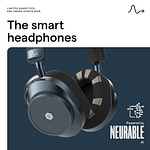The Deload explores my curiosities and experiments across AI, finance, and philosophy. If you haven’t subscribed, join nearly 2,000 readers:
Disclaimer. The Deload is a collection of my personal thoughts and ideas. My views here do not constitute investment advice. Content on the site is for educational purposes. The site does not represent the views of Deepwater Asset Management. I may reference companies in which Deepwater has an investment. See Deepwater’s full disclosures here.
Additionally, any Intelligent Alpha strategies referred to in writings on The Deload represent strategies tracked as indexes or private test portfolios that are not investable in either case. References to these strategies is for educational purposes as I explore how AI acts as an investor.
Overcoming Human Nature
AI has two distinct advantages in investing vs humans: It can process massive amounts of data, and it doesn’t have emotions. These advantages of AI have become undeniable to me since starting my experiments with Intelligent Alpha last summer.
While I’ve written a lot about AI’s super power that comes from lack of emotion, I haven’t spent as much time exploring its data processing super power. AI has an obvious advantage in data processing vs humans because our processing of data requires slow linear consumption and then thoughtful analysis of the limited information we consume. An AI can consume information in parallel fashion and do immediate analysis.
The human advantage is creativity. It’s abstract thinking. It’s in interacting with other humans to test ideas through different perspectives. The optimal state of data analysis to accelerate the information we interact with somehow to harness our competitive advantage. That’s where AI can come in.
On this episode of the Deload Podcast, I speak to Thematic CEO and co-founder Steven Carpenter. Thematic AI-powered investment analysis tools in the hands of all investors by making it easy to analyze stocks that fit certain quantitative or qualitative criteria via a simple natural language interface. Thematic wants to be the place where an investor starts any research process all powered by AI.
Then the company makes it even easier to build and track indexes or portfolios to test any idea. I’ve been using Thematic to track my Intelligent Alpha strategies since last year.
Here are my major takeaways from our conversation.
A Toy on the Tech Curve
AI naturally invites the jobs question. Will AI kill jobs? Will it kill my job?
Steve described three categories of people as it comes to AI:
People scared of it.
People skeptical of it.
People embracing it.
Those categories hold true for all emerging technologies. Some fear that the new tech will make them irrelevant or change the world for the worse. Some think the new tech stupid because most new technologies start looking like a toy. And some embrace the new tech by playing with it despite its toy-like nature. That’s the early adopter.
It’s shocking to me how few people are really embracing AI despite the constant hype, but if everyone adopted some new tech, it wouldn’t be emerging anymore. It would be consensus.
Our conversation about embracing AI reminded me of one of my favorite blog posts from Bryce Roberts where he retold a story of a designer who told Travis Kalanick that she hated the Uber app, and that he should let her redesign it. He offered her a job, she took it. Lewis capped the story with this:
Most people want to be fit, most people aren’t.
Most people want to build a successful business, most people won’t.
Most people want to be the best version of themselves, most people aren’t.
Most people have dreams they want to fulfill, most people won’t.
Everyone wants to quit something, build something, be something, do something. Most people won’t.
How many things have we wanted? How many opportunities have we craved? How many broken things have we wanted to fix?
And how many of those have we shrunk from. Hid from. Or, excused away.
We’re not alone.
Most people won’t.
But every once in a while someone puts themselves out there. Makes the leap. Faces rejection or failure or worse. And comes out the other side. Better. Changed. Bolder.
Most people won’t. Which means those that do change everything.
Most people should embrace AI now. Most people won’t. Which means most people that do earn an unfair and growing advantage.
The Expert Fallacy
Conventional AI wisdom is that we’ll see verticalized LLMs that are trained for specific, narrow use cases — medicine, physics, mathematics, etc. While I think we’ll see verticalized LLMs for many fields, my counter intuition about verticalized LLMs for investment decisions is that it might result in worse outcomes than the generalized models we have today. Steve called this the “Expert Fallacy.”
Traditional active investing is more art than science. Whereas fields like physics and mathematics deal in absolutes, investing deals in abstracts. For AI use cases that deal in absolutes — flying a plane or looking at radiology scans — specialized models make sense. For artful use cases like investing, generalization may be superior to specialization. The greatest investors tend to be generalists that understand investing at a deep level, but they also understand many other things about the world at a deep enough level to make intelligent investments.
I believe there is an efficient frontier of knowledge for a given AI model to optimize investment decision making skill. Too much knowledge may be as bad as too little. The role of the human in an AI-powered investing world may be in assessing where AI models live on that efficient frontier for stock picking ability, just as asset allocators assess human managers today.
The future of investing is intelligent, and the humans who figure out how to use AI to their advantage will win.
Podcast Timestamps
1:40 The founding story of Thematic
6:40 Use cases for Thematic’s indexing and portfolio tracking platform
10:45 Using AI on Thematic and AI to create novel investment products
14:00 What makes AI a good tool for investors?
19:00 Why do different AI models think differently as investors?
24:30 How will banks and institutional investors use AI?
35:30 How will AI affect investment jobs?
40:30 Steve’s philosophy on building businesses
Disclaimer: My views here do not constitute investment advice. They are for educational purposes only. My firm, Deepwater Asset Management, may hold positions in securities I write about. See our full disclaimer.











